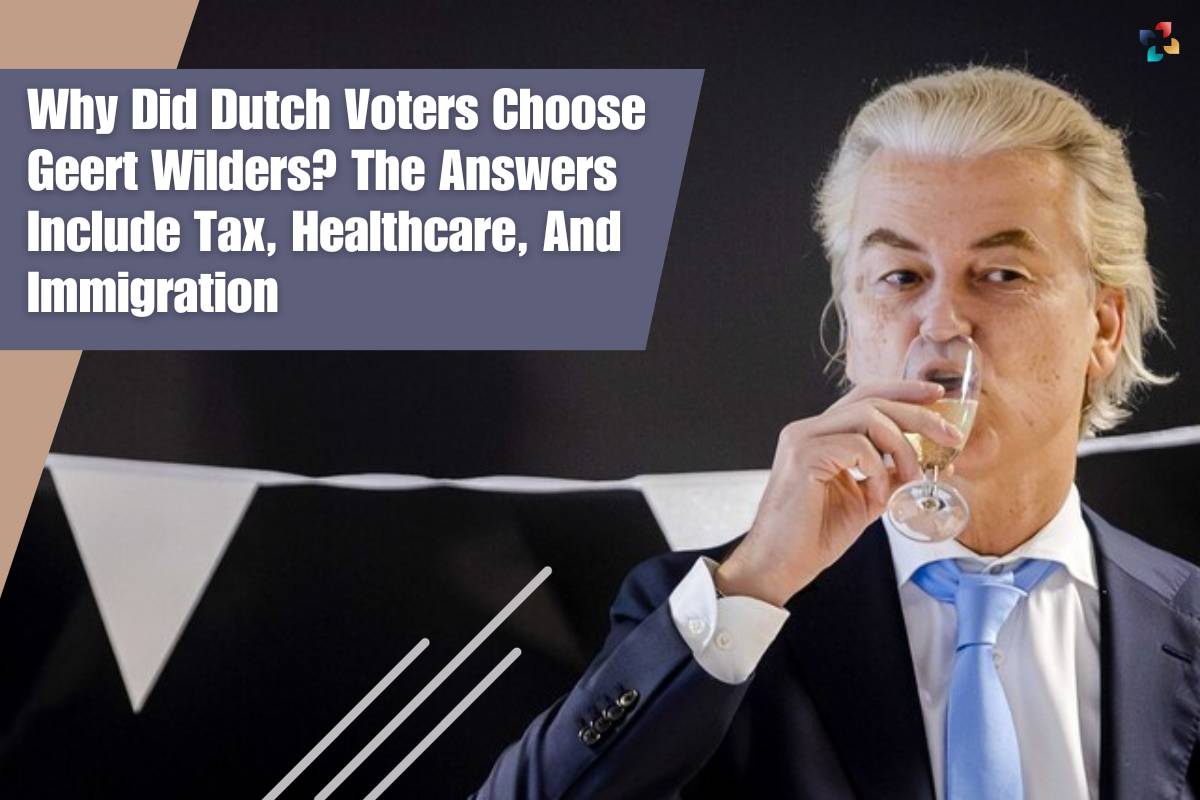Source – telegraph.co.uk
Similar to Brexit, Geert Wilders’ victory in the Dutch polls is one of the biggest electoral upsets in European politics and will have an impact throughout the continent. However, the earthquake was more of a shrug than a scream in Rotterdam, the Dutch city where the far-right Party for Freedom (PVV) is currently the largest political party.
As she accepted a delivery of sacks of potatoes for the chip store where she works, Jeannette, 34, remarked, “While he said ‘enough is enough,’ he is right: enough is enough.” “The amount we pay for taxes, healthcare, and rent is excessive. We are at our breaking point.
Jeanette voted for Geert Wilders on Wednesday along with millions of other Dutch voters, primarily, she claims, out of rage over the difficulties she and her family confront in making ends meet. Her defence of his status as an advocate for the common person caught in the middle of the cost of living problem was evident as she reeled off a long list of expenses each month that she must pay out of her net monthly earnings of €2,422 (£2,106).
“Those outside of the Netherlands believe everything is fine here. It is true that we are wealthy in comparison to Belgium or Turkey. They don’t know why people voted for Geert Wilders, but you know why if you’re here, she remarked.
Jeanette expressed her disagreement with Geert Wilders’ previous anti-Islamic statements, which included advocating for a ban on the hijab and fewer Moroccans living in the nation, saying, “If people want to wear that, I understand.” However, there is a recognisable hint of bitterness mixed in with her socioeconomic grievances.
“Even though we live in a wealthy nation, how come we in Holland have to pay so much, and they tell migrants to come on in and have whatever they want—we’ll give you everything?” She enquired.
Jamie, a 23-year-old waiter at The Hague’s Grand Cafe, which is approximately 30 minutes from the harbour, claimed that only one of her seven close friends, who had previously voted for the party of outgoing prime minister Mark Rutte, had not supported Geert Wilders’ PVV.
Although Walders speaks bluntly and gives his opinion, he can be a little harsh at times. It is a significant alteration. For as long as I can remember, Mark Rutte has been there, the woman remarked.
She was lured to Geert Wilders, like Jeanette, because of his remarks regarding housing and his assurance that senior citizens would receive free transportation. However, she also backed his incredibly divisive immigration policy. “The Netherlands will be returned to the Dutch, the asylum tsunami and migration will be curbed,” declared the leader of PVV on Wednesday.
Jamie declared, “I’m not against migrants.” “They have to travel through Germany and Belgium to get here, but they come here because it’s better here and we are an open country; they don’t stay in the two neighbouring countries.” This is unfair, she said.
According to Matthijs Rooduijn, an associate professor of political science at Amsterdam University, voters who identify as Wilders frequently have such opinions. “People who struggle more to make ends meet make up the majority of the PVV electorate,” the author writes. They feel more isolated. They believe that someone is ignoring them. They essentially lead difficult lives in both an economic and cultural sense,” he remarked.
Naturally, the PVV is not a particularly left-wing political party when it comes to socioeconomic issues, but it is also not a particularly right-wing party in this regard. Geert Wilders portrays himself as a supporter of the underprivileged; this is sometimes referred to as welfare chauvinism. Thus, he contends that assistance should be given to those in need, but only to “Henk and Ingrid,” the Dutch names he gives his supporters. Furthermore, that isn’t, as it were, “Mohammed and Fatima.” Therefore, it is welfare, but only for our people, in his opinion.
Esperansa, a 20-year-old student of literature and movies, is terrified by such views. Esperansa supported the GroenLinks-PvdA partnership, which is led by Frans Timmermans.
Geert Wilders Wins Dutch Election in Victory for Far Right
“I’m not content,” she declared. Because Geert Wilders is an extreme-right politician, I have never been a fan of his policies. His Islamophobic views, his plans to shut down mosques, and his proposals to outlaw the headscarf and halal meat are just a few of his abhorrent policies.
She went on, saying, “I think it’s very stupid that a lot of people voted for him but Geert Wilders presented himself as milder than extreme,” in reference to his choice to temper some of his language during the campaign.
Franklin, an Aruba native who is 71 years old, saw no surprise in the outcome if you had watched every debate. It is anticipated. Migration, housing, and the cost of living for all candidates were hot subjects during the debates, he added, noting that Holland has changed significantly over the years.
“[Geert Wilders] is a seasoned politician who understands self-censorship.” He used a very gentle approach to make his points. Opponents frequently referred to him as a “wolf in sheep’s clothing,” yet he was elected. The extreme right is expanding everywhere; just take a look at Hungary, the US, Argentina, and Brazil.
Also Read: Utilizing Four Kinds of Healthcare Analytics in Your Practice











